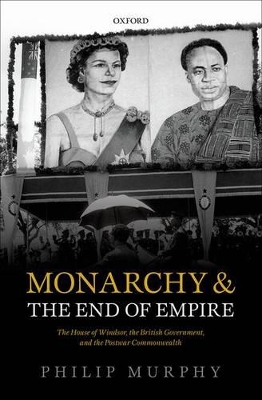By the early twentieth century it was becoming clear that the Empire was falling apart. The British government promoted the Crown as a counterbalance to the forces drawing the Empire apart, but when India declared their intent to become a republic in the late 1940s, Britain had to accept that allegiance to the Crown could no longer be the common factor binding the Commonwealth together. They devised the notion of the Headship of the Commonwealth, enabling India to
remain in the Commonwealth while continuing to give the monarchy a pivotal symbolic role. Monarchy and the End of Empire provides a unique insight on the triangular relationship between the British government, the Palace, and the modern Commonwealth since 1945.
In the years of rapid decolonization which followed 1945 it became clear that this elaborate constitutional infrastructure posed significant problems for British foreign policy. Not only did it offer opportunities for the monarch to act without ministerial advice, it also tied the British government to what many within the UK had begun to regard as a largely redundant institution. Philip Murphy employs a large amount of previously-unpublished documentary evidence to argue that the monarchy's
relationship with the Commonwealth, initially promoted by the UK as a means of strengthening Imperial ties, had increasingly become an impediment to British foreign policy.
- ISBN10 0199214239
- ISBN13 9780199214235
- Publish Date 5 December 2013 (first published 1 January 2013)
- Publish Status Active
- Publish Country GB
- Imprint Oxford University Press
- Format Hardcover
- Pages 256
- Language English
